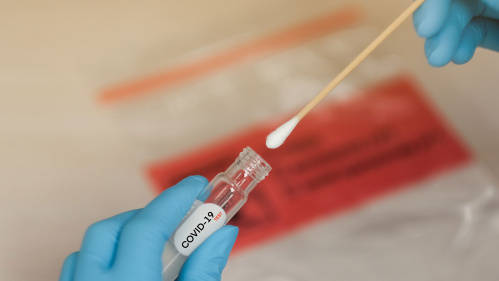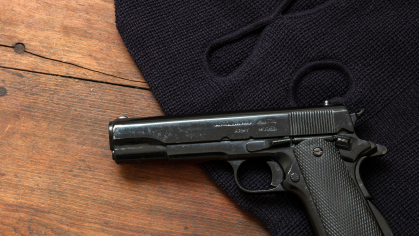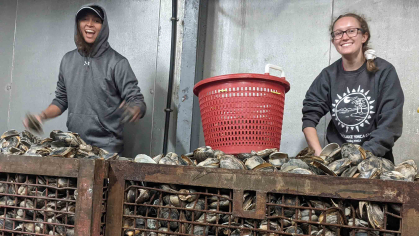Inexpensive Saline Solution Can Improve Speed, Effectiveness of COVID-19 Testing

A readily accessible saline solution can safely store coronavirus samples, allowing for more effective testing and long-distance transport to labs, Rutgers researchers find
An inexpensive and readily available saline solution can be used to safely store and transport coronavirus samples and help resolve a nationwide shortage of the solution needed to complete COVID-19 testing, according to Rutgers researchers.
In a study published in The Journal of Molecular Diagnostics, investigators report that phosphate buffered saline — a simple salt solution commonly found in hospitals and clinical laboratories — can be used as a virus transport medium for up to 18 hours to reliably send coronavirus-contaminated specimens to the testing laboratory.
Recognizing that viral RNA of SARS-CoV-2, the virus that causes COVID-19, can remain stable on certain surfaces for up to three days, the researchers believe that the inexpensive and commonly available salt solution could be used instead of the complex and hard-to-obtain viral medium and increase testing and transport throughout the country at a lower cost.
“Necessity is the mother of invention,” said co-lead investigator Martin J. Blaser, a professor in the Department of Medicine at Rutgers Robert Wood Johnson Medical School and director of the Center for Advanced Biotechnology and Medicine at Rutgers. “We were facing a problem about specimens reaching the lab intact, due to the nationwide shortage of viral transport medium, so we endeavored to test a widely available solution to see if it could help us.”
Three experimental procedures were performed using discarded respiratory secretions from 16 confirmed COVID-19 patients. Swabs were dropped into vials containing either the salt solution or virus transport medium and transported to the laboratory for analysis using real-time testing to detect the presence of three specific SARS-CoV-2 virus genes in the samples.
In the first procedure, eight samples from two subjects were taken at the same time and transported in each method. The samples were processed either immediately or after two hours at room temperature. SARS-CoV-2 was detected in all samples at similar levels for each patient, demonstrating that results were consistent for samples obtained and stored in identical manners.
In a parallel experiment, samples were tested after remaining at room temperature in either method for various lengths of time up to 18 hours. Researchers found that storage at room temperature had little effect on the values detected for the three SARS-CoV genes in either medium, demonstrating that both could be useful for labs that test for several SARS-CoV genes that have different processing times.
In a third experiment, the researchers also found that the medium did not affect the detectability of the virus in samples from 12 patients.
“New Jersey has been hit hard by Covid-19,” said co-lead investigator Jared Radbel, an instructor in the department of medicine at Rutgers Robert Wood Johnson Medical School and a researcher at Rutgers Environmental and Occupational Health Sciences Institute. “Like other parts of the country, we have had delays in testing. Steps like using alternative materials to increase identification of infected individuals are needed to help clinicians respond to this pandemic illness.”
The research was part of the nation’s largest prospective study of health care workers exposed to Covid-19, which is being conducted by Rutgers.
See how Rutgers is making a difference during the COVID-19 crisis.


